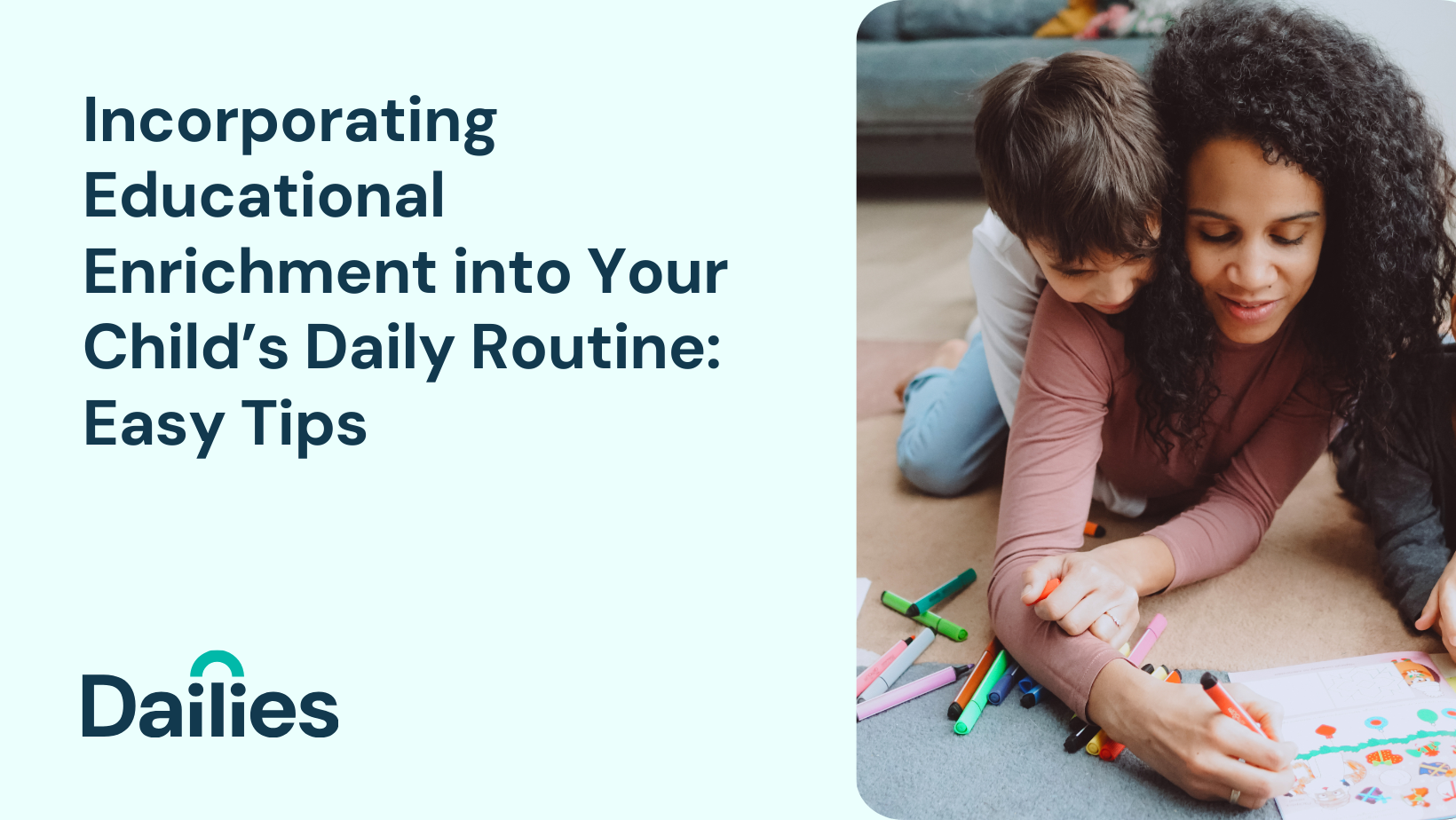Written by
Jillian Burger Read all posts by this author
Incorporating Educational Enrichment into Your Child’s Daily Routine: Easy Tips
In today’s fast-paced world, finding ways to weave educational enrichment into your child’s daily routine can feel overwhelming. Between school, activities, and family time, where does one even begin? The good news is, it doesn’t have to be complicated! By incorporating small, manageable practices into everyday moments, you can help foster your child’s love for learning without adding stress to your already busy life. Here are some easy tips to get you started.
- Make Learning Part of Daily Conversations
One of the simplest ways to integrate education into your child’s day is through conversation. You don’t need to create a formal lesson plan; instead, look for opportunities to talk about what they’re curious about. If your child asks a question, encourage their curiosity by discussing the topic further. For example, if they ask why the sky is blue, you could talk about how light from the sun scatters in the atmosphere. Not only does this engage their thinking, but it also shows that learning can happen anytime, anywhere.
- Use Daily Activities as Teaching Moments
Everyday tasks can be turned into educational opportunities. Cooking dinner? Involve your child by having them measure ingredients, which strengthens their math skills. Grocery shopping? Ask them to read labels or calculate the cost of items. Even something as simple as sorting laundry can become a lesson in colors, patterns, or even basic math (how many socks are there?). These activities help children see the practical applications of what they learn in school.
- Create a Reading Habit
Reading is one of the most powerful tools for learning. Set aside time each day for your child to read, whether it’s a bedtime story or a quiet afternoon moment. Make it a family affair by reading together and discussing the books. You can also introduce a variety of genres to expand their horizons—mysteries, science fiction, biographies, or even poetry. The key is to make reading enjoyable, not a chore, so let them choose books that interest them.
- Incorporate Educational Games and Puzzles
Games and puzzles are fantastic ways to boost critical thinking and problem-solving skills while having fun. Incorporate these into your child’s routine by setting aside a few minutes each day for a quick game or puzzle. Educational board games, card games, or even apps can be a hit. These activities not only reinforce learning but also strengthen family bonds.
- Encourage Creative Expression
Creativity plays a crucial role in cognitive development. Encourage your child to express themselves through art, music, or writing. Set up a space at home where they can freely create. Whether it’s drawing, crafting, writing stories, or even making music, these activities allow children to explore their imagination and develop new skills. Praise their efforts and display their work proudly to boost their confidence.
- Explore Nature Together
Spending time outdoors offers countless learning opportunities. Take nature walks, visit parks, or simply spend time in your backyard observing plants, animals, and the changing seasons. You can turn these outings into mini science lessons by identifying different types of trees, insects, or birds. Nature has a way of sparking curiosity and a sense of wonder in children, making learning feel like an adventure.
- Set Goals and Celebrate Achievements
Lastly, help your child set small, achievable learning goals and celebrate when they reach them. Whether it’s mastering a new word, finishing a book, or learning to tie their shoes, acknowledging their achievements encourages them to keep striving for more. This practice builds a sense of accomplishment and motivates them to embrace learning with enthusiasm.
Final Thoughts
Incorporating educational enrichment into your child’s daily routine doesn’t have to be a daunting task. By making small changes and finding opportunities for learning in everyday activities, you can create a rich environment where your child can thrive academically and personally. Remember, the goal is to make learning enjoyable and to show your child that education is a lifelong journey—one that’s filled with excitement, discovery, and endless possibilities.

